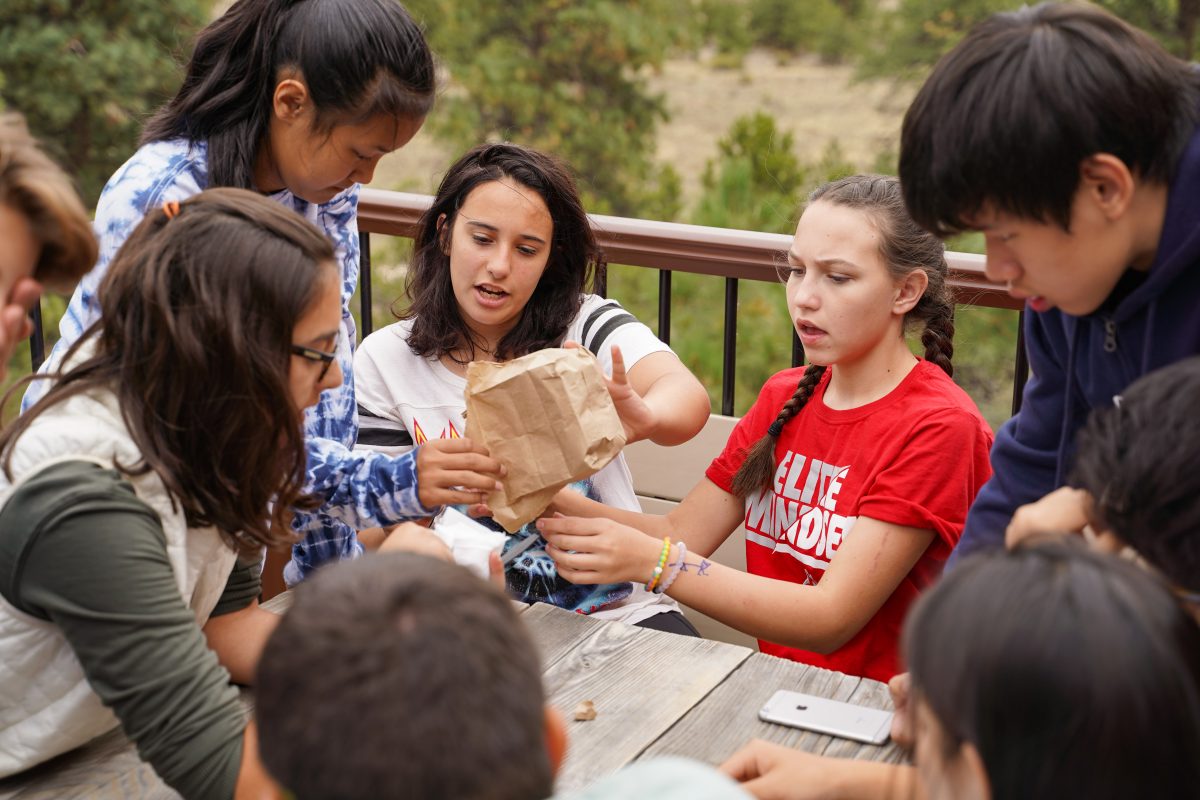Fountain Valley School of Colorado: Leadership Training for Freshman Students
Posted: 26 March 2018

In recent years, we have been looking at ways to encourage students to adopt leadership positions in the school. One of the ways we sought to achieve this was by defining what we mean by leadership and articulating the qualities that leaders need, to dispel some of the myths around leadership and advertise the value of these opportunities.
Alongside this, we also increased the opportunities for younger students to fulfil leadership roles. In doing so, we wanted to ensure that we prepared students for these responsibilities by giving them a foundation in leadership values and an opportunity to discover their own leadership approach.
The result was the establishment of a new leadership course called ‘Chapter One’, which focuses on self-discovery and leadership approaches.
Author: Simon Walker; Round Square Rep, History Teacher
Planning
The class was developed by the Dean of Students in collaboration with the Assistant Dean and school councillor.
Activity
Chapter One is a one semester foundation class for all students in Year 9 and takes place in the fall semester of their year. It aims to orientate our students to the topic of leadership and shape their attitudes to leadership in line with the school’s core values: open-mindedness, curiosity, courage, self-reliance and compassion.
The students are set tasks which bring these values to life and build their confidence and competency in each area. An example of this might be to sit next to someone new in the dining hall, have lunch with a teacher or talk to the head of school in order to foster courage. They are assigned points for achieving each task, which are needed to meet the minimum points target to pass the course.
In the third week of the course, students attend a two-day off campus retreat that aims to build on the themes they have already been introduced to and provide experience of certain practical elements of leadership.
There are exercises, for example, based on mindfulness. Leaders can often find themselves wholly absorbed by the magnitude of their work yet it’s important to find calm and clarity of thought to make critical decisions. In a task to experience this, the students are taken to a meadow and form a circle around a tree. They are then instructed to walk 100 paces away from the tree and sit down quietly for 20 minutes. The exercise shows students how a small change can help them find themselves in a busy environment.
Another principle that is woven into the retreat is the importance of service-led leadership; that leadership is not about power over others. During the retreat, students are involved in a number of domestic tasks to serve others, such as cooking all the meals.
Fostering teamwork skills is another component of the event. One exercise we use to promote this is the Helium Stick task. In this task, students line up in two rows facing each other. They are then asked to hold the ‘helium stick’ (a long, thin, lightweight rod) with just their index finger. They are challenged to lower the stick to the ground whilst keeping their fingers touching the stick and ensuring that the stick is straight. The students soon find that the stick has a habit of mysteriously ‘floating up’ (as if filled with helium, hence the name). The collective upwards pressure created by everyone’s fingers is greater than the weight of the stick so as a result, the more the group tries, the more the stick tends to ‘float’ upwards. The exercise is confusing for students at first, then frustrating, and they may be inclined to give up. However, by working together slowly and patiently the task can be achieved.
Another task along this theme sets the students the challenge of building a protective structure around a raw egg to enable it to stay intact when dropped from a balcony 30-foot high. Each team is given a bag containing different items to do this; some have more than others, some have virtually nothing to work with. The groups are aware of their different fortunes and have the opportunity to show compassion to the other groups.
The learnings come full circle as students who have been through the Chapter One course can apply, in subsequent years, to become leaders for the retreat. As well as helping the teachers manage the event, they help the students stay on task and give them their own perspective on the subject of leadership.
For the duration of the semester, students keep a journal. This helps them reflect on the process they used for approaching the task and assess how successful they were in completing it. The students are encouraged to discuss their perceptions with their peers and the Chapter One teachers.
After completing the course, students are able to practise their learnings by volunteering or applying for student leadership roles. In Grade 9, they can be admissions ambassadors or tour guides; in Grade 10, club leaders or international student mentors; and in the years above, Residential Assistants (boarding) or Peer Leaders (Day students).
Challenges
We established Chapter One as a pass or fail course as we wanted to ensure it was taken seriously. Students know and understand that their attendance is expected and it is a required assignment. Our teachers closely monitor students’ progress as our aim is to achieve a 100% pass rate. Where students are struggling, we support them and also engage parents in the process.
Impact
Our current seniors are the first to have completed Chapter One. We feel they are strong leaders and display a good competency in their various leadership roles.
We have also seen an increase in the diversity of students interested in and volunteering for leadership positions. This indicates to us that we are reaching the ‘quiet leaders’, the ones with different personality types that don’t traditionally accord to the leadership tropes.
The future
Chapter One is now four years-old and is constantly being adapted. We are considering book-ending the course with a final chapter for students in their senior year and plans around this are being developed.
Advice
- Don’t push students into leadership roles without some understanding of the importance of certain leadership qualities.
- Refer everyone back to the core values and school mission in terms of justifying why you are focusing on this.
- Celebrate your leaders and highlight their successes. Ensure they are honoured and feel valued. Meet them regularly and make sure you give directional, yet supportive, feedback to help them grow.
